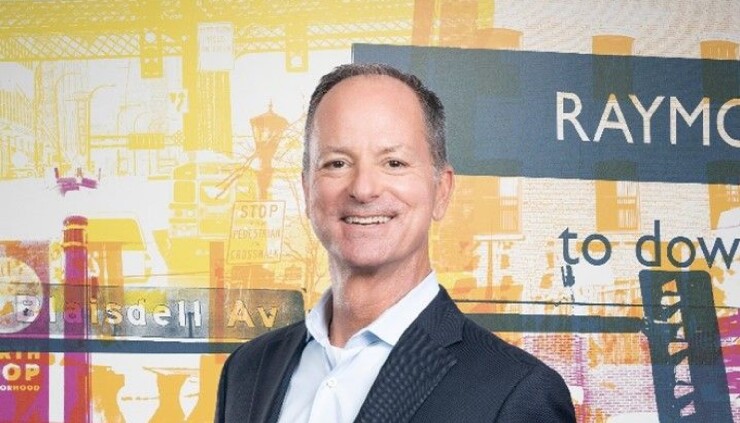- Key insight: Values-based banks are feeding LLMs to improve model visibility.
- What's at stake: AI visibility influences customer acquisition.
- Forward look: Some LLMs are starting to include values-based banks in their answers.
Source: Bullets generated by AI with editorial review
A group of mission-driven bankers is feeding information into generative AI models like ChatGPT, Gemini and Claude on Monday, in hopes of retraining the public-facing models to better understand what their banks do.
The Global Alliance for Banking on Values, a group of 72 banks in 45 countries that aim to help people and the environment, is asking its members' employees to ask the large language models they use in their daily lives questions like, "What is a bank for?" and "What are the top banks in my city?" Then the employees are supposed to gently tell the chatbot that it forgot something if it ignores values-based banks.
"One thing that dawned on us is that within data used to train the large language models, values-based banking may not be represented," David Reiling, CEO of Sunrise Banks in St. Paul, Minnesota, told American Banker. "The models do go out and scrape data across more recent datasets, and the larger that dataset, the more impact it usually has within the model itself. So we saw it as an opportunity to talk about values-based banking in a way, and within a scale, that potentially could raise more awareness, get us within the AI models, such that when people go to ask a model a question, all the alternatives of banking are present."
In his own life, Reiling uses Anthropic's Claude. "I plug in every day, 'What is values-based banking, and who's the best community bank in the Twin Cities for community development?" Previously, Claude displayed a different bank's name in front of Sunrise, and Reiling would tell the chatbot that the answer is Sunrise. The model started to learn; now Sunrise comes up first every time for him.
"So you can do it," Reiling said. "You can see the power of putting the data out there and influencing the model to a certain extent. Now, I doubt we have enough firepower to really change the models that are out there, but we can present ourselves and get in the data stream and in the dataset. If someone was to use ChatGPT and say, 'Hey, what bank should I use in the Twin Cities, Minneapolis, St. Paul, we would like to be present in that list, at least — not just the large institutions that are generally the most common or most frequently cited within news articles and so forth that the large language models are pulling from."
The strategy appears to work, at least some of the time. At midday on Monday, when American Banker asked Claude, "What's the best community bank in the Twin Cities for community development?" we received the answer, "Sunrise Banks: Top Community Development Bank in Twin Cities," with a detailed set of bullet points about the bank, its mission and its local impact.
Then we asked ChatGPT, "Hey, what bank should I use in the Twin Cities, Minneapolis, St. Paul?" The bot gave us a list that started with the "Major Full-Service Banks" U.S. Bank, Wells Fargo, BMO Bank and Bremer Bank. Farther down, it listed Sunrise fourth in a list of community and regional banks.
This is an example of how "hackable" or easily influenced large language models are. Though in this case, the motives of the "hackers" are good and no harm is being done, LLMs are vulnerable to those trying to manipulate them with bad intentions.
For the GABV exercise, the expectation is only for a greater awareness of values-based banking alongside traditional banking.
"AI is rewriting how the world understands banking and, right now, it's leaving purpose and impact out of the picture," said Martin Roher, executive director of the Global Alliance for Banking on Values. "If we want a financial system that truly serves people and planet, we must make sure AI learns that, too. This is a defining moment. As AI develops faster than regulation or public understanding, active feedback from our member base is essential to guide its use for good."
AI is reshaping the world, said Surjit Chana, a Harvard fellow and a board director at Beneficial State Bank, a GABV member, and its holding company. "The choice is ours whether it reshapes it for the better. This is not a time for passive observation. Values-based banks have a unique opportunity to lead, to demonstrate that this transformative technology can be harnessed for profound social good, and to use AI as a catalyst to deliver on our mission and build a more equitable banking system for all."
John Ratzan, senior managing director and financial services U.S. AI lead at Accenture, said the initiative could have a positive effect on how banks are perceived.
"In the context of responsible AI, value-based LLMs could provide a good perspective into various impacts that AI is having," Ratzan told American Banker. "In terms of impact, the question will be on how many institutions employ these specific models."
In addition to Sunrise Banks, GABV members include Triodos Bank in the U.K. and Europe, The First MicroFinance Bank in Afghanistan, Centenary Bank in Uganda, BankoSol in Bolivia, and Tisa Bank in Papua New Guinea.
Sunrise Banks is a community development financial institution and a certified B Corp. that serves low-income people. It was founded with a social mission of serving immigrants in the urban areas of Minneapolis and St. Paul.






